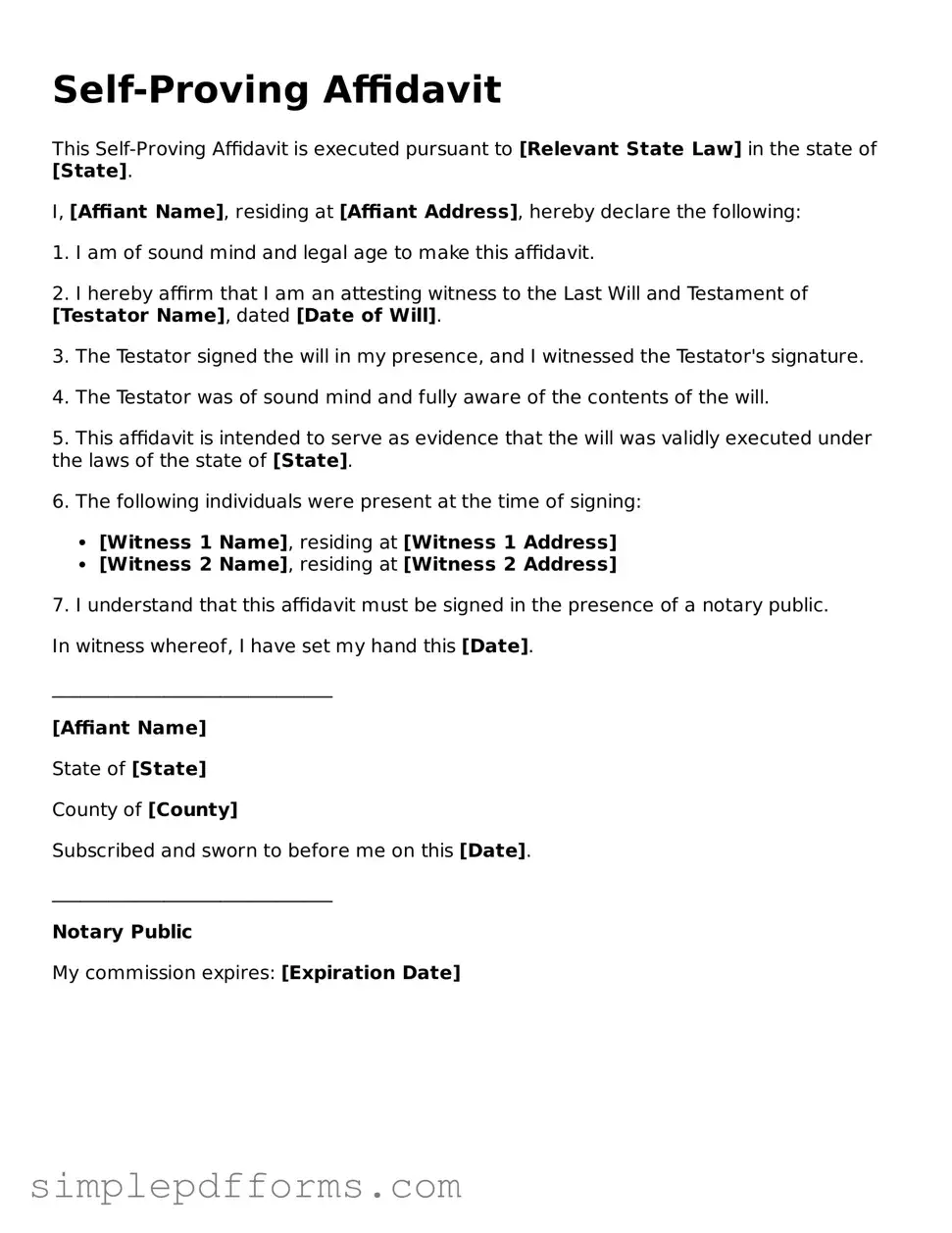Free Self-Proving Affidavit Form
A Self-Proving Affidavit is a legal document that helps validate a will without the need for witnesses to testify in court. This form streamlines the probate process, ensuring that the deceased's wishes are honored efficiently. By including a Self-Proving Affidavit, you can save time and reduce complications for your loved ones during a difficult period.
Open Self-Proving Affidavit Editor Now

Free Self-Proving Affidavit Form
Open Self-Proving Affidavit Editor Now

Open Self-Proving Affidavit Editor Now
or
Get Self-Proving Affidavit PDF Form
Your form is waiting for completion
Complete Self-Proving Affidavit online in minutes with ease.